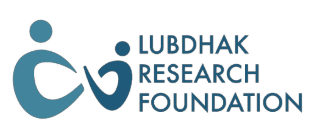ABA Therapy in Times of India


Shradha Chettri & Mohammad Ibrar
- Sept 5, 2019
Mentors indeed: Changing lives of children with special needs
NEW DELHI: Teachers play a crucial role in the growth — academic and mental — of students. For children with disabilities, their teachers’ importance is even greater because they require specialised attention and assistance. On Teachers Day, TOI met educationists who have gone that extra mile for children with special needs, from initiating change in government schools and making scientific interventions available to the needy to nurturing their potential through sports.
Seema Tuli, principal of Amar Jyoti School in east Delhi, will long be feted for her step to make sign language a compulsory third language in her institute, irrespective of whether the student is hearing impaired or not. “In my school, there is a ratio of 60:40 of children with and without disability,” Tuli said. “I decided to ensure that everyone communicated in the same way and so I made learning sign language mandatory as part to the three language formula. Children as young as four years are growing together with others in the school, so the teachers don’t need to tell the regular students to help others.” The walls of Amar Jyoti School have sign language symbols painted on them for constant familiarity.
For Stuti Gaur, a special educator in Delhi government schools, doing something more meaningful meant assisting other special educators to understand disabilities other than the ones they had specialised in. “In 2015 when I was deputed to south district, I began working with 50 special educators,” said Gaur. “In the monthly meetings, the special educators, each with a different specialisation, worked in groups and learnt from each other. Now the government has started cross-disability training for all special educators employed in Delhi government schools.”
In a similar initiative, Sonam Agarwal Sachdeva, special educator at Springdales School, Pusa Road, trained Aadhya Verma, an alumnus with Down syndrome, to work with her as a teacher assistant at the institute’s resource centre.
Anit Chhetri and Sandeep Gulliya work with NGOs and have been helping children who are either yet to enter school or are out of the school system. Chhetri, who runs an NGO called Lubdhak Research Foundation in Vasant Kunj, has been imparting speech and language assistance to children with autism and other behavioural disorders.
“As I am a certified behaviour analyst, I use applied behaviour analysis (ABA) to impart language skills,” said Chhetri. “ABA is based on scientific research but not widely practised in our country, which is why I want every parent to learn about it. The children I have worked with have gone on to regular schools.”
Gulliya, working with NGO Parivartan, has been part of the coaching of the cricket contingent for the Special Olympics. He empowers children with special needs through sports and vocational activities. “I went to a school where regular and special children studied together and whenever we played, I saw special children having difficulties. I had always wanted to help them, so I trained to be a sports teacher,” said Gulliya.
If Gulliya had decided early enough that he wanted to help children with special needs, the others entered the field by chance. Sachdeva was working at a career in finance, Tuli was a general teacher for many years, and Chhetri was an IT professional. After their years of experience, all of them say that a lot needs to be done to make education truly inclusive. They stressed on changes in the CBSE evaluation and curriculum to allow children with disabilities to complete their school education and the need to provide them “vocational education”.
“Every teacher has to be equipped to handle children with special needs. Only then will there be inclusive education in real terms,” added Tuli.
